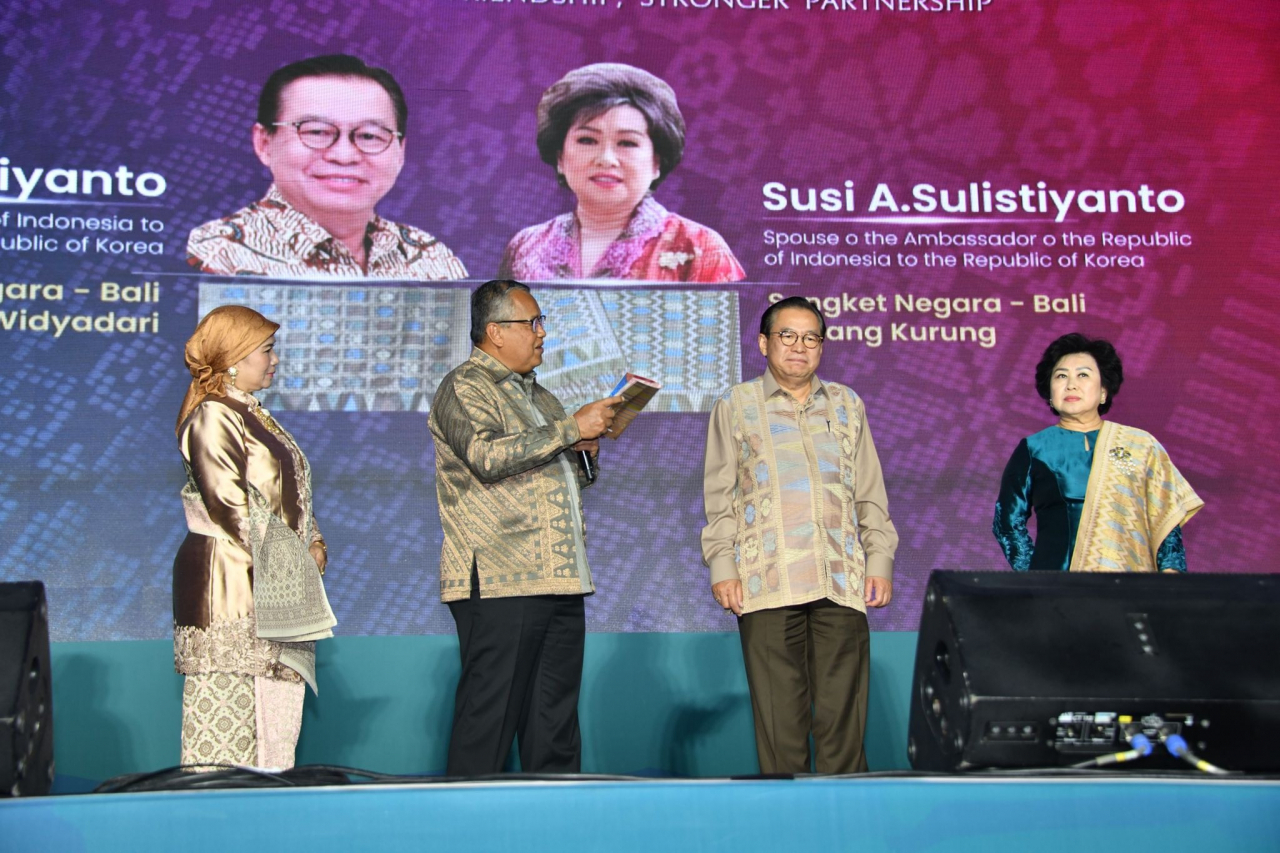 |
Indonesian Ambassador to Korea Gandi Sulistiyanto (third from left) and his spouse Susi Ardhani Sulistiyanto attend Indonesia Night at Susung Hotel in Daegu, Wednesday. (Indonesian Embassy in Seoul) |
The Indonesian Embassy on Wednesday held "Indonesia Night" in Daegu to commemorate the 50th anniversary of Indonesia-Korea relations.
Showcasing Indonesia’s diversity through an exhibition and cultural performances, the Indonesian Embassy highlighted the significance of Tenun, traditional handwoven fabric, as an icon of Indonesian culture.
"For centuries, handweaving techniques for making Tenun from various provinces of Indonesia have been passed on from generation to generation," said Gandi Sulistiyanto, Indonesia's Ambassador to Korea, adding that Tenun is currently transforming into modern attire and being worn by the younger generation.
Tenun refers to an artful Indonesian weaving technique to make a fabric of colorful threads known as original cultural heritages preserved till the present day.
Eleven outfits made from Tenun as well as Songket, a golden thread handwoven textile, were showcased and worn by prominent Koreans and Indonesians.
According to the embassy, each textile is carefully selected by the Governor of the Bank of Indonesia as each represents a different area where Tenun and Songket is produced, including Tenun from Negara in Bali, Songket from Bangka and Belitung, and Tenun Pinawetengan in North Sulawesi.
Introducing the uniqueness of Tenun under the theme of "Closer Friendship through the Beauty of Indonesian Wastra," Indonesia’s Central Bank Governor Perry Warjiyo highlighted that Tenun is usually woven by women, who play a leading role in ensuring the craft is passed on to future generations to preserve Indonesia’s priceless cultural heritage.
Wastra means traditional fabrics in Bahasa Indonesian language.
"Each piece of Tenun and Songket (a type of textile) cloth, due to its long process of making, is a masterpiece that carries significant economic value," said Warjiyo.
"The Bank of Indonesia is promoting small and medium enterprises in provinces supervised by Indonesia’s Central Bank."
"Creativity and industry have to complement each other," said Indonesia’s Vice Minister for Tourism and Creative Economy Angela H. Tanoesoedibjo.
The Indonesian government enacted laws and mechanisms to promote 17 subsectors of the creative economy, including fashion, crafts and culinary arts, Tanoesoedibjo added. The envoy shared her government's initiatives on the creative industry.
North Gyeongsang Province Gov. Lee Cheol-woo also attended the event along with artists and influencers, the embassy said.







![[Herald Interview] How Gopizza got big in India](http://res.heraldm.com/phpwas/restmb_idxmake.php?idx=644&simg=/content/image/2024/11/20/20241120050057_0.jpg)